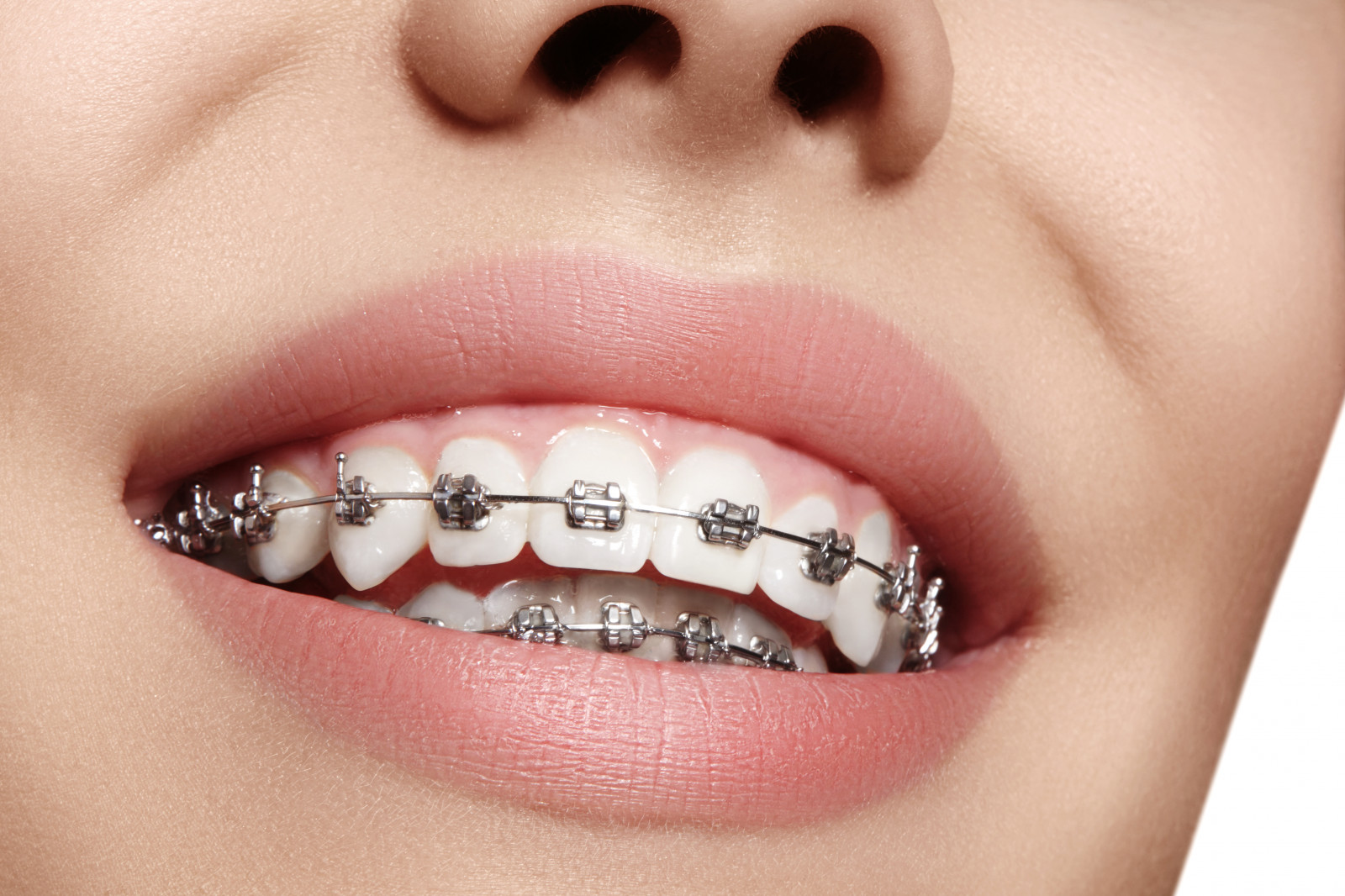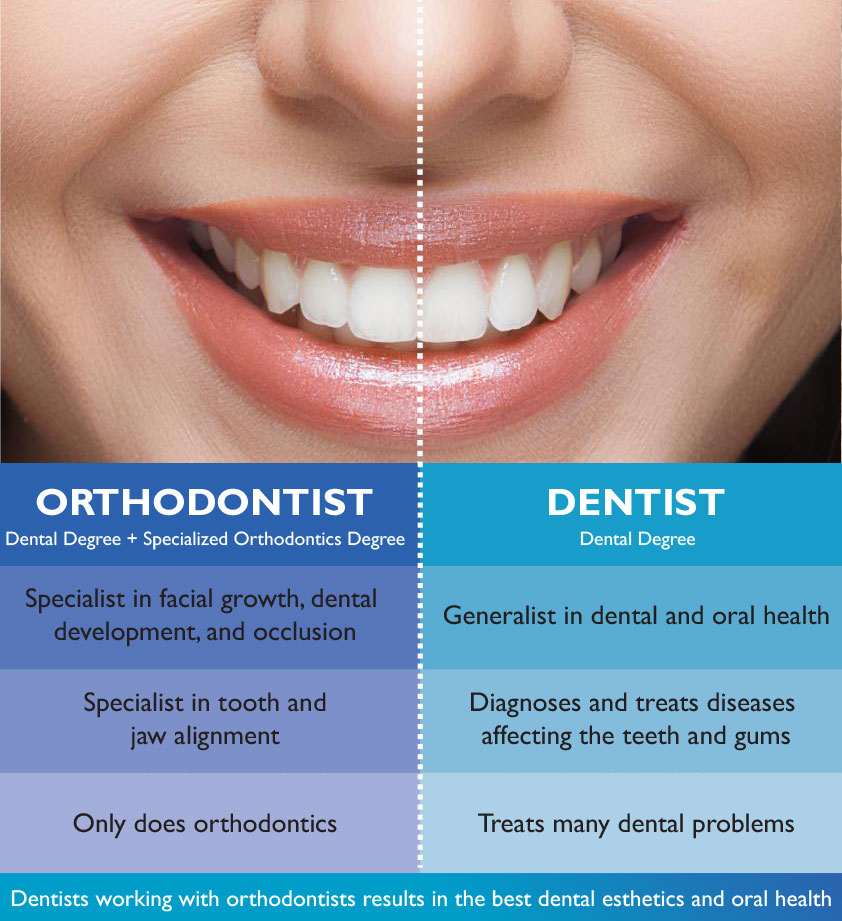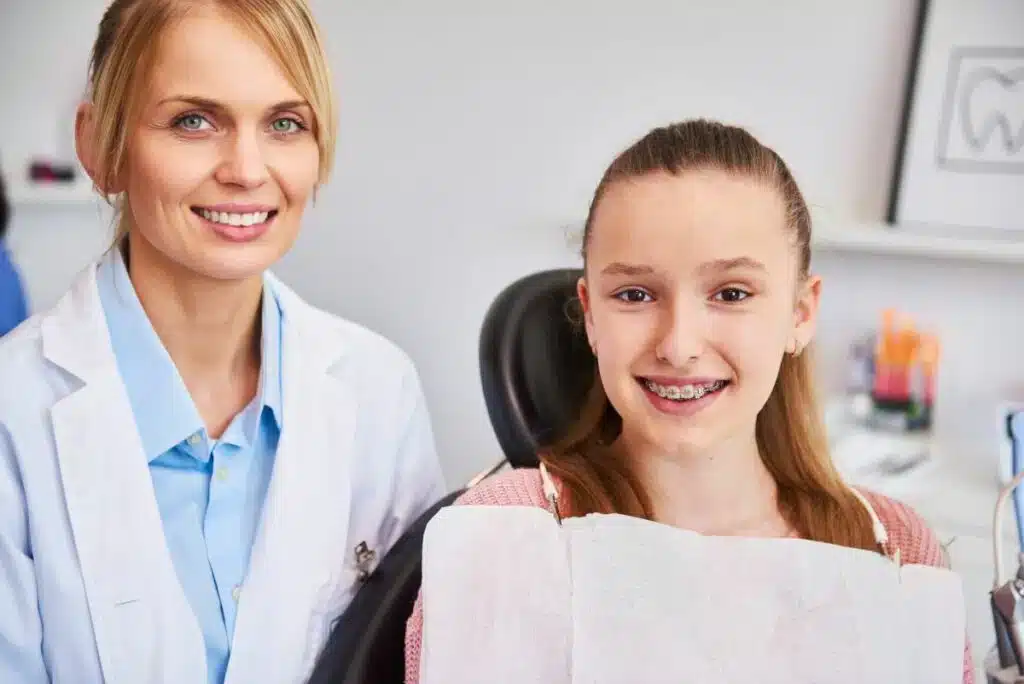An Unbiased View of Causey Orthodontics
An Unbiased View of Causey Orthodontics
Blog Article
The 6-Second Trick For Causey Orthodontics
Table of ContentsThe Ultimate Guide To Causey OrthodonticsThe 45-Second Trick For Causey OrthodonticsCausey Orthodontics for DummiesAbout Causey OrthodonticsThe Basic Principles Of Causey Orthodontics The Ultimate Guide To Causey OrthodonticsThe Best Guide To Causey Orthodontics
What is the distinction in between a dental expert and an orthodontist? To answer a question that is frequently asked, both dental professionals and orthodontists help clients obtain much better oral wellness, albeit in different means. It helps to bear in mind that dental care is a rather wide scientific research with different clinical field of expertises. All dentists, including orthodontists, deal with the teeth, gums, jaw and nerves.
You can assume of both medical professionals that treat periodontal and teeth issues. The main difference is that becoming an orthodontist calls for a specific specialty in treating the misalignment of the teeth and jaw.
The Of Causey Orthodontics
An orthodontist is a dental professional that has gone through training to specialize in the medical diagnosis, prevention and therapy of irregularities in the jaw and teeth. They can likewise determine possible issues in teeth positioning that may establish when problems are left unattended (orthodontist services).
This consists of all the essential education and learning to become a basic dental professional. According to the American Student Dental Organization (ASDA), it suggests you will require to have either a Doctor of Medicine in Dentistry (DMD) or a Physician of Oral Surgery (DDS). In various other words, orthodontists need to complete oral school and afterwards obtain an orthodontics specialized education.
Some orthodontists likewise obtain their masters in craniofacial biology. These programs concentrate on two details areas or self-controls: Dentofacial Orthopedics: This research focuses on guiding teeth and jaw advancement.
The Buzz on Causey Orthodontics

 These include apparatus such as braces, retainers and Invisalign. So, what does an orthodontist do, and what do they concentrate on? The overall goal of an orthodontist is to improve a person's bite. Not everyone is birthed with straight teeth, and an orthodontist will make certain that patients obtain uniformly spaced straight teeth.
These include apparatus such as braces, retainers and Invisalign. So, what does an orthodontist do, and what do they concentrate on? The overall goal of an orthodontist is to improve a person's bite. Not everyone is birthed with straight teeth, and an orthodontist will make certain that patients obtain uniformly spaced straight teeth.
The Buzz on Causey Orthodontics
The American Association of Orthodontists recommends your first check up by age 7. You'll need to see your orthodontist if you have a misalignment in your teeth, additionally known as malocclusion. Likewise, if you notice uneven bite patterns, a slightly irregular jaw, or when your teeth are overcrowded, you will likely need orthodontic treatment.
In addition, we use flexible therapy routines, adaptable payment alternatives and a fun, satisfying experience.
An orthodontist is a dental expert trained to detect, stop, and deal with teeth and jaw abnormalities. Orthodontists function with people of all ages, from kids to adults (https://devpost.com/causeyorthodga?ref_content=user-portfolio&ref_feature=portfolio&ref_medium=global-nav).
Some Known Factual Statements About Causey Orthodontics
Malocclusion, or misaligned teeth, can cause oral issues, consisting of tooth decay, gum illness, and hard or painful eating. Not every person is birthed with straight teeth. If you have a bad bite or big areas between your teeth, you may wish to seek advice from a dental expert concentrating on orthodontic treatment.
(Image Credit Rating: DigitalVision/Getty Images) Orthodontists utilize taken care of and detachable oral devices, like braces, retainers, and bands, to alter the position of teeth in your mouth. Orthodontic therapy is for oral irregularities, consisting of: Uneven teethBite troubles, like an overbite or an underbiteCrowded teeth or teeth that are too far apartJaw misalignmentThe goal of orthodontic therapy is to improve your bite.
Not known Facts About Causey Orthodontics

, however not all dentists are orthodontists. They focus on two locations: How to properly and safely move teeth Exactly how to appropriately assist growth in the teeth, jaw, and faceOnce an orthodontist has finished training, they have the alternative to become board accredited.
Imbalance, or malocclusion, is one of the most typical reason individuals see an orthodontist. It is genetic and is the result of size distinctions in between the top and reduced jaw or in between the jaw and teeth. best orthodontist near me. Malocclusion brings about tooth overcrowding, an askew jaw, or irregular bite patterns. Malocclusion is typically treated with: Your orthodontist attaches steel, ceramic, or plastic square bonds to your teeth.
Getting My Causey Orthodontics To Work
If you have only minor malocclusion, you might have the ability to use clear dental braces, called aligners, as opposed to typical braces. Some individuals require a headgear to aid relocate teeth right into line with pressure from outside the mouth. After dental braces or aligners, you'll require to wear a retainer. A retainer is a personalized tool that keeps your teeth in position.
Report this page